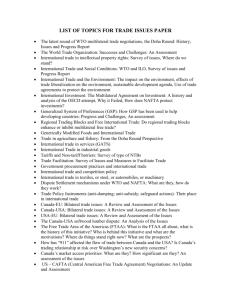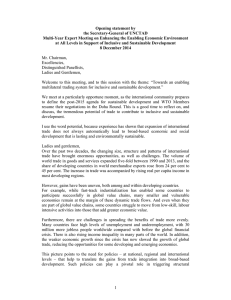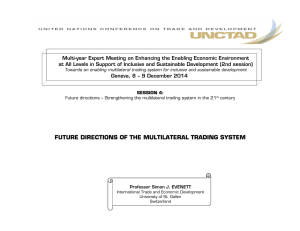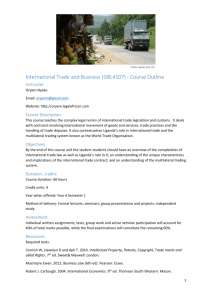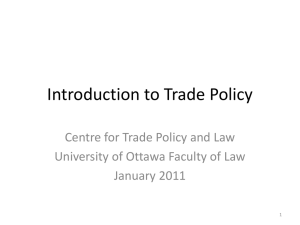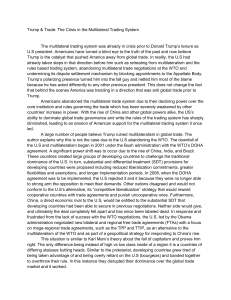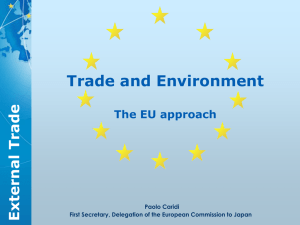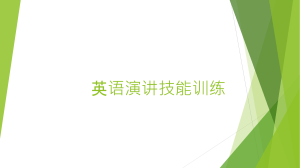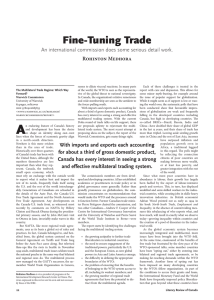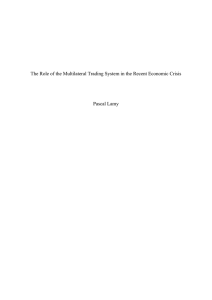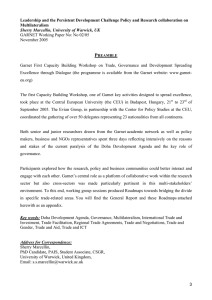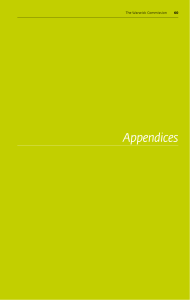Conclusion the warwick commission the University of warwick 54
advertisement
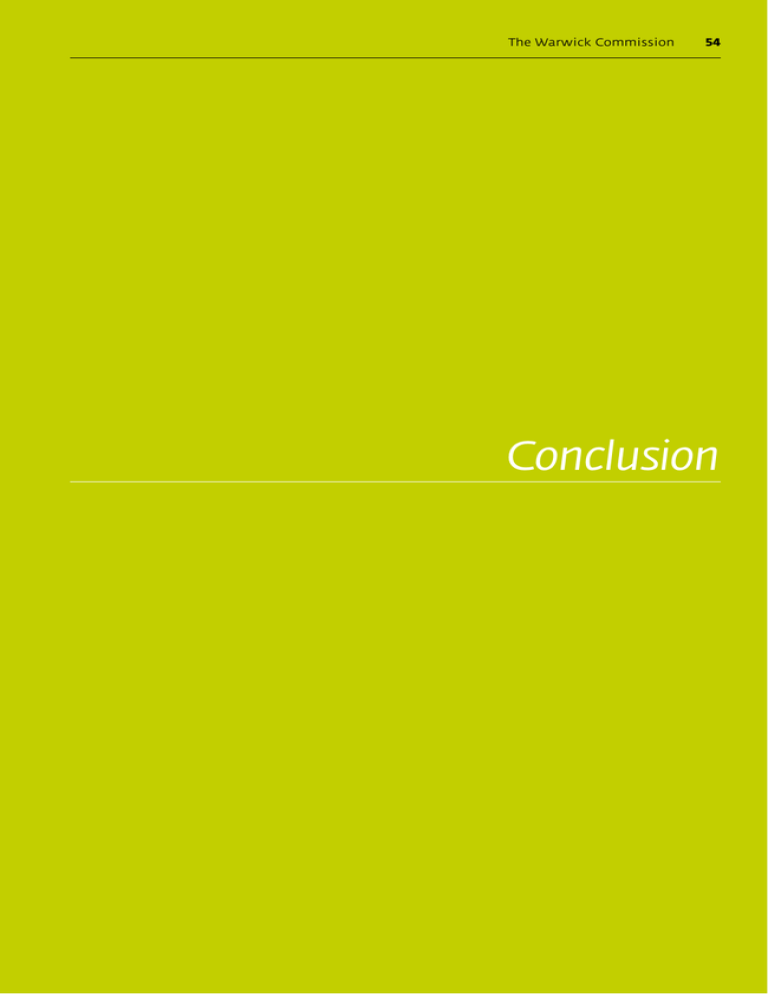
The Warwick Commission 54 Conclusion 55 The University of Warwick Which Way Forward? This Report is finalised at a time when the outcome of the Doha negotiations is still to be determined. That the DDA has not been the focus of attention of this Report is not to underestimate the importance of securing an optimal outcome as soon as possible in the DDA. Rather, we have focussed on a number of specific aspects of the management of the global trade regime that transcend issues specific to the DDA. This is a reflection of our belief that there are a number of important questions to be addressed about the health of the multilateral trading system irrespective of whether a Round is in train or not. As was demonstrated in Chapter 1, the global economy in general, and the multilateral trading system in particular, are at crossroads. Support for an open, liberal trading system is neither consistent nor unambiguous. Indeed, in Chapter 1, we identified five challenges that are modifying the politics of international trade, in general, with implications for the multilateral trading system, in particular. In such a context, the Commission came to the view that three matters, at least, need to be addressed in the contemporary trading system: the need to improve the management of agenda setting, decision-making and participation in global trade; the need to define more tightly the relationship between trade and development; and, finally, the need to understand, and respond to, the increasingly complex relationship between the multilateral system and the growing number of preferential trade relationships. These issues were tackled respectively in chapters 2-4 of the Report. This concluding section does not rehearse these arguments or indeed the recommendations of the respective chapters. Rather it seeks to advance one over-arching recommendation. The Warwick Commission The Warwick Commission is of the view that it is time for the membership of the WTO to undertake a constructive, non-litigious, nonconfrontational ‘reflective exercise’. Lest this should seem a naïve or trivial suggestion let us recall that such exercises have been undertaken in the past; for example, by the Working Party on Structural Adjustment that met in the early 1980s and the various deliberations of the old Consultative Group of Eighteen (CG18). We are not, of course, suggesting the latter consultation processes as a model for the early 21st century. Rather, in recognising the importance of procedural justice, we would envisage a reflection process open to the entire membership rather than simply a section of it. In our opinion, such an initiative should be led by either the Director-General or the Chairman of the General Council. Issues for consideration in such a consultation exercise should be wide ranging, including emerging issues such as the relationship between climate change and trade, but it would also clearly offer an opportunity to discuss several of the recommendations identified in this Report. For a ‘reflection exercise’ to be a significant initiative it needs to be based on improved information provision. Contemplation without superior information will be a limited exercise. As an example of what we mean, we developed a discussion in Chapter 4 of the importance of monitoring all new RTAs. More generally, we are advocating the enhancement of the WTO’s abilities and tasks in the area of monitoring and surveillance of trade policy and activity. The purpose of such activity is not simply knowledge for knowledge’s sake, but rather as a means to developing more positive attitudes 56 towards cooperation in the years to come. The monitoring and surveillance functions of the WTO have expanded and must surely continue to do so as WTO obligations become deeper and obstacles to trade, such as Non Tariff Barriers (NTBs), become more complex. By cooperation we mean here not only the full implementation of existing obligations, but also enhanced thinking about the direction that cooperation might take in the future. We cannot simply assume that the right path will be followed. A period of structured and meaningful reflection is required. In this regard, we think that the timing is right for our proposed reflection exercise which would aim to develop a longer term understanding of the contemporary functioning and future direction of the trade system in general and the WTO in particular. concluding Recommendation 10 The Commission therefore recommends that a process of reflection be established in the WTO, led by the Chairman of the General Council and/or the DirectorGeneral, to consider the challenges and opportunities facing the multilateral trading system and to draw up a plan of action to address them.
